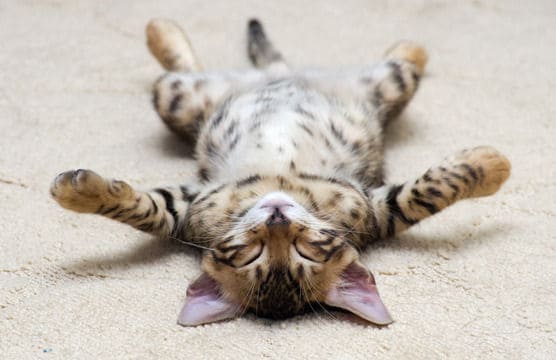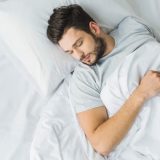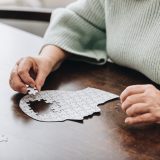

The holiday season is upon us and with it comes the inevitable sleep deprivation from camping out for Black Friday deals and late night gift wrapping marathons. For some the added stress of this time of year turns one or two sleepless nights into a month. Others see little difference from the chronic insomnia that plagues their daily life. The unfortunate truth is that the longer this problem goes on the greater the negative effects to your health and well being.
A poor night’s sleep can lead to bags under the eyes, impaired concentration, alertness and problem solving. Fatigue is estimated to be the cause of some 100,000 motor vehicle accidents (MVA) and over 1,500 MVA-related deaths each year. Extended over time, sleep deprivation can impair memory, reduce sex drive, affect mood, reduce your immune function and age your skin prematurely. When insomnia becomes a chronic sleep disorder the health consequences become dire. Long term sleep deprivation has been shown to increase risk for heart disease/attack/failure, cardiac arrhythmias, hypertension, stroke, diabetes and increased risk for premature death from all causes.
Clearly, insomnia requires more than just a Red Bull for the morning drive to work. For those with a long term chronic affliction, professional intervention at a sleep specialist may well be the answer. For many, simple changes can make a world of difference in how they get through the night.
Try these 5 tips to drop into delta sleep and wake up refreshed:
- Exercise – There are few health issues that cannot be positively affected by a good workout. Insomnia is no exception. A 2013 poll by The National Sleep Foundation found that people who exercise regularly report getting better sleep than those who don’t exercise at all.
- Reduce Caffeine Intake – Caffeine hangs around in your system for at least 5 or 6 hours after the last serving. Cut out caffeinated beverages after lunch (that includes soft drinks). A caffeine-free herbal tea may be a satisfying replacement that calms and enhances sleep.
- Meditation – Numerous studies have shown the connection between the relaxation achieved from regular meditation and improved ability to fall asleep and sleep through the night.
- Make the Bedroom Sleep-Friendly – Comfort, quiet and darkness are essential for the relaxation and stillness necessary to achieve the deeper stages of sleep. Make sure the mattress, linens and bedclothes keep you well-supported at a comfortable temperature, and remove any sources of light and noise that might interfere. Extraneous noises from outside may be overcome with a white noise machine. Remove all work-related stuff from the bedroom and place in a more appropriate area for work activities.
- Consider Melatonin – As opposed to prescription drug therapies for sleep such as Ambien, melatonin is a safe, natural supplement that is non-habit forming, and does not result in drowsiness or irritability the next day. Melatonin supplements, like Fast Asleep lozenges, are the best choice for fast, long-lasting effects. By dissolving in the mouth they deliver the melatonin directly into the bloodstream with maximum potency and best results.
Insomnia is nothing to trifle with. The human body does most of its repair and rejuvenation work during those hours when the body is resting, relaxed and still. Taking steps to get adequate rest every night will have far-reaching effects for your health and well-being. They call it “beauty sleep” for a reason.





I know for sure that I sleep better when I exercise regularly. Not only do I fall asleep easily, but I get much more restful sleep. And if I miss a few Zumba classes, right away I have trouble sleeping and wake up still feeling very tired.